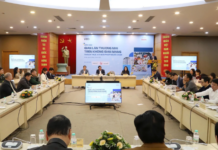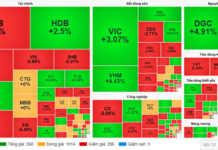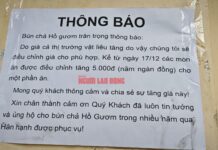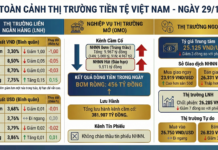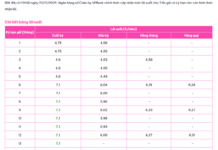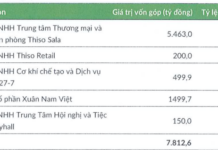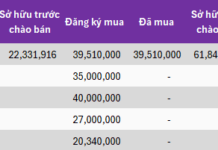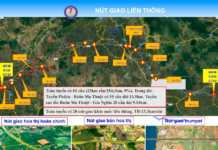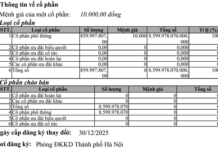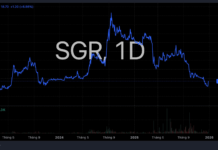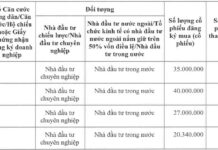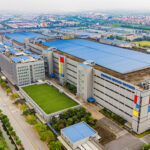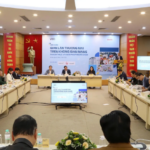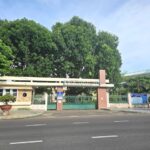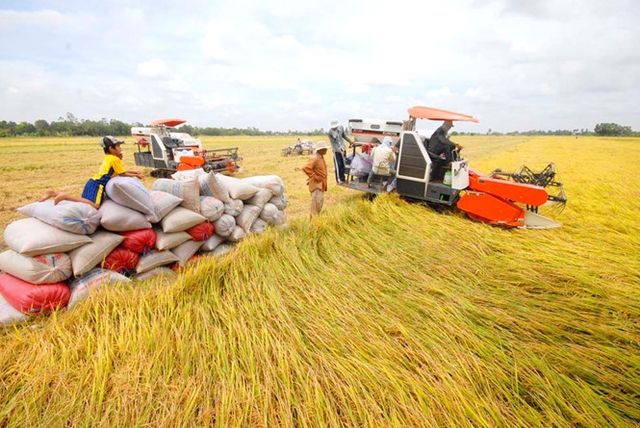
On September 11, 2024, the Vietnamese government issued Decree No. 112/2024/ND-CP, providing detailed regulations on rice-cultivated land. The decree outlines supportive policies for protecting rice-cultivated land and promoting investment in infrastructure and modern technology for high-yield and high-quality rice-growing areas.
Additional Support for High-Quality Rice Cultivation
According to the decree, the state budget will provide the following support for rice production:
1. An increase in support to VND 1,500,000 per hectare per year for specialized rice-cultivated land (up from VND 1,000,000).
2. Support of VND 750,000 per hectare per year for other rice-cultivated land, excluding rice fields that were expanded spontaneously without proper planning or land-use plans.
3. An additional support of VND 1,500,000 per hectare per year for specialized rice-cultivated land in areas planned for high-yield and high-quality rice production.
The decree specifies that the eligible area for support under points 1 and 2 will be determined based on land statistics published by the Ministry of Natural Resources and Environment for the year preceding the beginning of the budget stabilization period. For the allocation of funds in 2025, the statistics for 2023 will be used.
The eligible area for support under point 3 will be determined and announced by the provincial People’s Committees for the year preceding the beginning of the budget stabilization period.
Utilization of Support Funds
The decree stipulates that the utilization of funds collected from organizations and individuals who are allocated land for non-agricultural purposes from specialized rice-cultivated land, as well as the state budget support for rice production, will be decided by the provincial People’s Councils based on the specific conditions of each locality. The funds can be used for the following activities:
– Supporting rice farmers: promoting the use of legal rice varieties, applying production processes and advanced techniques recognized by competent state agencies, developing demonstration models, conducting agricultural extension activities, organizing training and linkage in production and consumption.
– Improving the quality of rice-cultivated land.
– Assessing the physical and chemical properties and creating soil maps for specialized rice-cultivated areas every five years.
– Repairing and maintaining agricultural and rural infrastructure in communes.
– Supporting the purchase of licensed rice varieties.
Investment Policies and Infrastructure Support for High-Yield and High-Quality Rice-Growing Areas
The decree states that the state will invest in infrastructure development in high-yield and high-quality rice-growing areas from the central budget allocated to localities. The investment will prioritize irrigation and transportation projects, following the principles, criteria, and capital allocation norms for public investment in each medium-term period issued by the competent authorities. The procedures will comply with the Law on Public Investment.
Support for Enterprises: 100% Funding for Irrigation and Transportation Projects in High-Quality Rice-Growing Areas
The decree provides that enterprises will receive up to 100% funding support from the state budget when investing in the construction of irrigation and transportation projects in high-yield and high-quality rice-growing areas.
Eligible projects include:
(i) Projects applying rice production processes that reduce greenhouse gas emissions, circular economic models, certified organic production, and linkage in rice production according to value chains.
(ii) Projects for processing rice and food products, producing biological products, and processing raw materials and high-tech products from rice, rice by-products, and by-products that meet the requirements of the law on high technology.
Projects under (i) must have an area of at least 500 hectares, while projects under (ii) must have a total investment of at least VND 30 billion to be eligible for state support of up to 40% but not exceeding VND 15 billion per project for the purchase of production lines, equipment, technology, and intellectual property rights.
The sources of capital, beneficiaries, support procedures, and implementation processes will follow the Government’s regulations on policies to encourage enterprises to invest in agriculture and rural areas. For economic organizations with foreign investment capital, the sources of capital and support procedures will follow separate regulations.
Investment Support for Cooperatives and Cooperative Alliances
The decree states that investment projects for infrastructure development in high-yield and high-quality rice-growing areas implemented by cooperatives and cooperative alliances will be entitled to state policies as guided by the Government’s Decree providing detailed guidance on a number of articles of the Law on Cooperatives.
Cooperatives and cooperative alliances can collaborate to implement the following projects in high-yield and high-quality rice-growing areas:
(iii) Projects applying rice production processes that reduce greenhouse gas emissions, certified organic production, and linkage in rice production according to value chains.
(iv) Projects for producing and processing rice and food products, and producing biological products, and processing raw materials and high-tech products from rice and rice by-products.
Projects under (iii) must have an area of at least 100 hectares, while projects under (iv) will receive state support of up to 100% of the investment cost for infrastructure development, purchase of production lines, equipment, technology, and intellectual property rights, with a limit of VND 5 billion per project.
The forms of support, levels of support, regulations on support from public investment capital, procedures for aggregating support needs, implementation methods, and post-investment management mechanisms will follow the provisions of the Law on Cooperatives and its guiding documents regarding policies to support investment in infrastructure and equipment.
The above projects will receive support from the state once. If a project or a component of a project has received support from the state budget according to this decree, it will not be eligible for support from the state budget according to other legal documents, and vice versa.
Decree No. 112/2024/ND-CP takes effect on September 11, 2024. The supportive policies for localities and rice producers stipulated in Decree No. 35/2015/ND-CP will continue to be implemented until December 31, 2024. The policies on the use of funds specified in Decree No. 35/2015/ND-CP (amended and supplemented at Point 4, Article 1 of Decree No. 62/2019/ND-CP) will also continue until December 31, 2024.
National Forestry Planning for 2021-2030: A Visionary Approach for the Decade Ahead
The Prime Minister has issued Decision No. 895/QD-TTg, approving the National Forestry Planning for the period of 2021-2030, with a vision extending to 2050.
The Quest for City Status: Provinces Bordering Hanoi, Ho Chi Minh City, Hai Phong, and Danang Aspire for Urban Transformation
With aspirations to ascend to the status of centrally-controlled municipalities, these provinces are ambitiously charting their course towards a transformative future, as outlined in the government-approved development plans.

